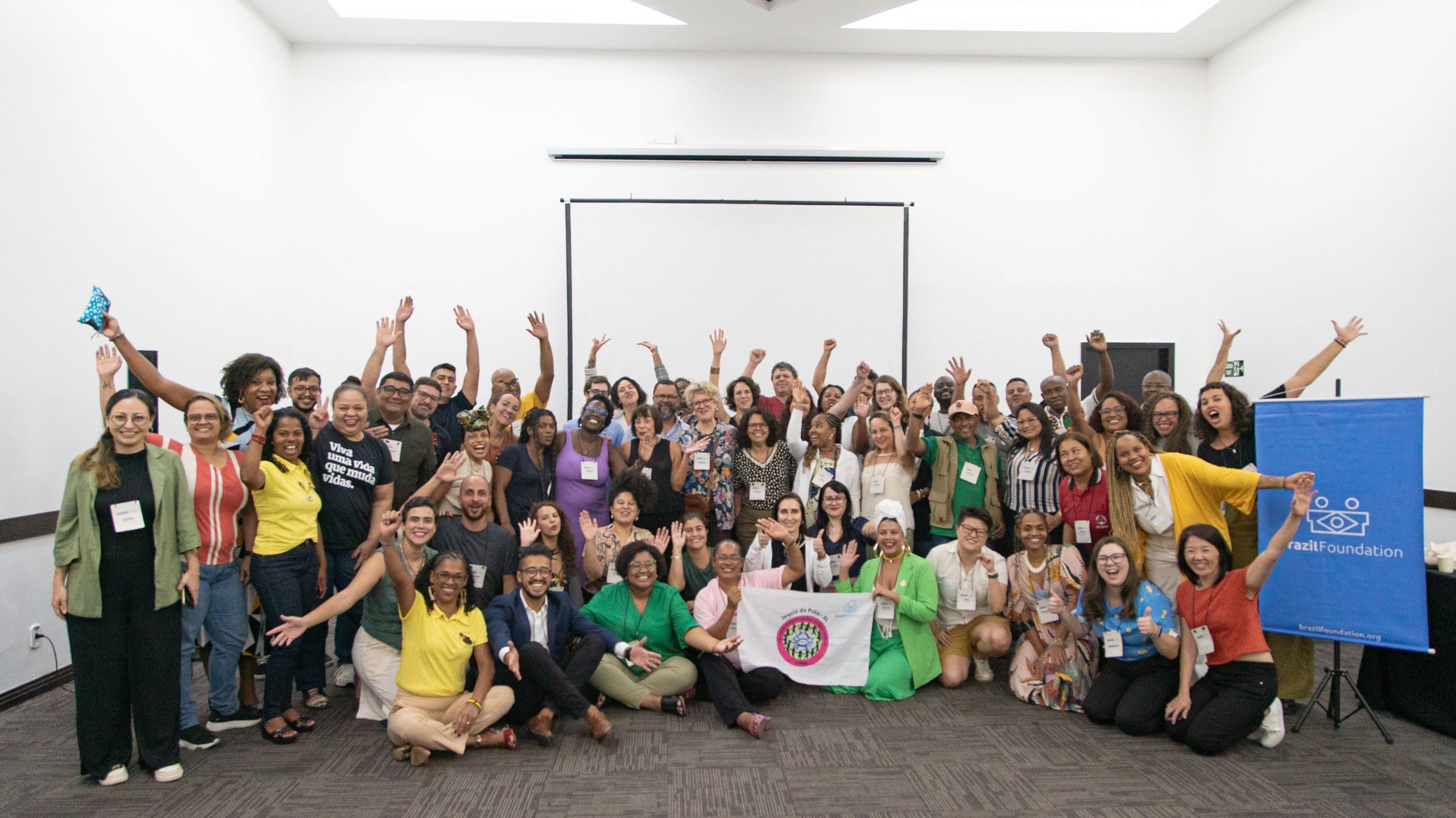Behind the Initiatives Transforming Education in the Pantanal, Thanks to a Modest Investment and a Lot of Dedication
By Nuria Saldanha
It’s in Miranda, in the Pantanal region of Mato Grosso do Sul, where you can find Brazil’s largest Terena community, comprising 8,000 people. And it was there in the villages that IPEDI (Instituto de Pesquisa da Diversidade Intercultural) was born. The organization was founded in 2012 by a group of academic researchers from Universidade Federal de Mato Grosso do Sul who wanted to give back to the local communities that had welcomed and hosted them as the location for so many academic projects.
Since then, IPEDI has been working to improve education and preserve local traditional knowledge there. Their first major project was Kalivono, the first bilingual didactic book in Portuguese and Terena. Both teachers and the school community contributed to the book, which is used in elementary indigenous schools. With a methodology that incorporates local language, knowledge, and aspects of the children’s daily lives in the village, the book is a tool to help preserve Terena identity, traditions and language, which are on the verge of becoming extinct. According to Unesco, only 17% of local children are fluent in the language. Resources to produce the book were made possible through a grant from BrazilFoundation’s Call for Proposals.
“They [BrazilFoundation] were our first sponsor. They went all the way to Miranda and saw a misguided group of people who had wanted to publish a book but didn’t know how. They saw potential in us; they talked to us about the third sector, about impact and how to perform assessments. They guided us and have been holding our hands ever since” – said Denise Silva, President of IPEDI.
With a contribution of only R$ 25,000 from BrazilFoundation and support from the Miranda community, IPEDI published Kalinovo in 2015. Thousands of copies were published and hundreds of teachers trained in the region to use the book in classrooms, benefitting both indigenous and non-indigenous students. To publish the book, IPEDI requested help from local universities, who allowed researchers to assist in the project and even print the material.
“Lots of people, including big organizations, think that the amount of money we received is very little, but for us it made a huge difference” – said Anderson Benites, Executive Director of IPEDI. The institute doesn’t have a headquarters. The people that work in the organization do it from various places, whether from their homes, on the ground, in indigenous villages or in riverside communities. One hundred percent of the grant amounts are invested in the projects. “If you don’t believe that you can make an impact with a little bit of money, then you don’t believe in the abilities of who is behind it” – said Anderson. “The biggest lesson we learned from BrazilFoundation is that we can make the best out of our resources by making partnerships within the community”, he continues.
The result was so special that Kalinovo was certified as Tecnologia Social (social technology) by Fundação Banco do Brasil and received the Movimento Natura award. Seeing the success of the book in schools was the push that the researchers at IPEDI needed to begin putting into practice their projects and ideas. The organization grew over the past five years and today it works with indigenous communities, riverside populations, and rural Pantanal residents. “From that first day, we were able to grow, expand our impact, form our team and develop ideas beyond those originally proposed,” said Denise.
[envira-gallery id=”34457″]
IPEDI works with Brazilians who didn’t have access to education – Brazilians who dream of learning, but who need special attention because they’ve faced complex social circumstances that have left them vulnerable- people such artisan fishermen who can’t read or write.
Through IPEDI’s Barco de Letras project, the fishermen learn to read and write by learning the necessary vocabulary for their daily work and interactions. Besides fishing for themselves, these fishermen work as fishing guides for tourists in the Pantanal. They need the language to be able to talk to the tourists, get paid, and especially, feel empowered and independent in their work and lives.
The initiative began with an investment of only R$ 5,000 from BrazilFoundation’s Community Innovation Award. This amount may sound small, but, according to Anderson, “It lasted the entire year, we were able to buy materials for the students, buy gas, and still offer financial aid for literacy classes”. From then on, tens of fisherman have already learned to read and write through the project. And when money got tight for the project, the fishermen themselves arranged for the teacher’s transportation – a true act of solidarity!
“We are committed to the cause because it’s the cause of our community, because this is our reality. We might not be able to change everything, but we are able to change a lot” says Anderson.
Looking to the future, IPEDI is preparing to expand its reach, with the goal of sharing the experiences and didactic materials with other municipalities in the region and in other states.
[envira-gallery id=”34460″]

